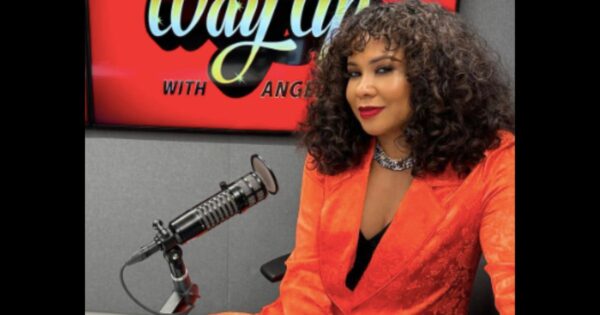Award-winning media host and entrepreneur Angela Yee is helping formerly incarcerated women rebuild their lives by putting a roof over their heads.

The New York native served as a keynote speaker while discussing “Building A Wealth Legacy,” at a summit in the Big Apple and shared how she’s helping formerly incarcerated women reach success through the development of a 30-unit building in Midtown Detroit.
Housing for Formerly Incarcerated
“It’s really hard to get housing when you get out of prison,” Yee explained last week at the 2023 Elite 100 Wealth and Legacy Summit, “if you look at the numbers, of how difficult it is, they used to ask you if you’ve ever been convicted of a felony, and people would not get housing.”
The Ladies of Hope Ministries founder Topeka K. Sam could relate firsthand to the obstacles to securing affordable housing after serving nine years in federal prison after pleading guilty to drug conspiracy charges. Originally, she was sentenced to 130 months in prison before her term was reduced to 65 months, according to Forbes.
After serving her time, Sam dedicated her attention to creating The Ladies of Hope Ministries, which assists women with safe housing and reentry support. Sam and Yee have now teamed up to bring the idea to fruition.
Financing Challenge
However, when attempting to get financing for the multi-unit building, Yee, who has an estimated net worth of $7 million and is the owner of several businesses, was surprised to find out certain stipulations were in place before getting approved.
“When we included her [Sam] in this deal, the bank actually wouldn’t get us a loan unless we took her off,” noted Yee.
A felony conviction can oftentimes be a hindrance to getting approved for a mortgage loan, Business Insider reports. Lenders often conduct background checks and consider an applicant’s criminal history as part of the loan approval process. When evaluating the risk associated with granting a loan, they may view a felony conviction as an indication of potential financial instability or increased risk of default.
This is one major roadblock Yee said she’s planning to tackle in the future.
“It was very emotional because it was yet another obstacle for somebody who has great credit and all of those things. But I was like, let’s get this done right so that we can, later on, discuss what type of policies need to be implemented in the future so this doesn’t happen to somebody else,” Yee said.
According to Prison Policy Initiative, Black and Native Americans released from federal prison had the lowest earnings, while white individuals experienced disadvantages and appeared less employable on paper due to longer sentences or higher substance abuse rates. Nevertheless, white individuals still maintained higher employment rates compared to their Black and Hispanic counterparts who served time in prison.
When addressing equity and wealth building during her talk, Yee emphasized how crucial it is to include formerly incarcerated individuals in the discussion so that they are successful in reintegrating back into society without being burdened with the social stigma that can have an impact on their livelihood.





White still get accepted for a lot of things Over Colored People; etc…